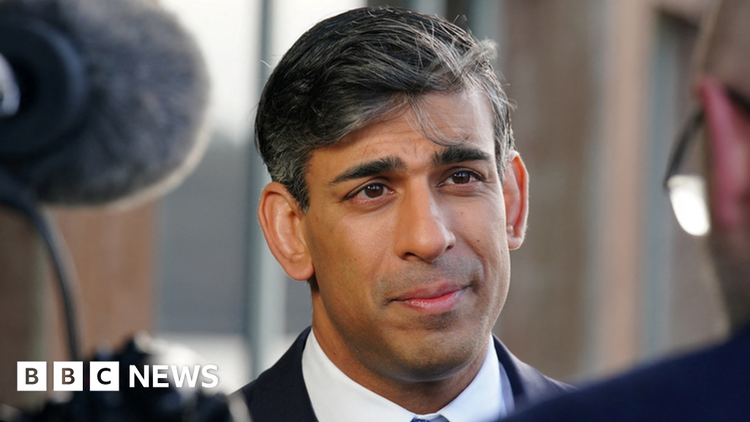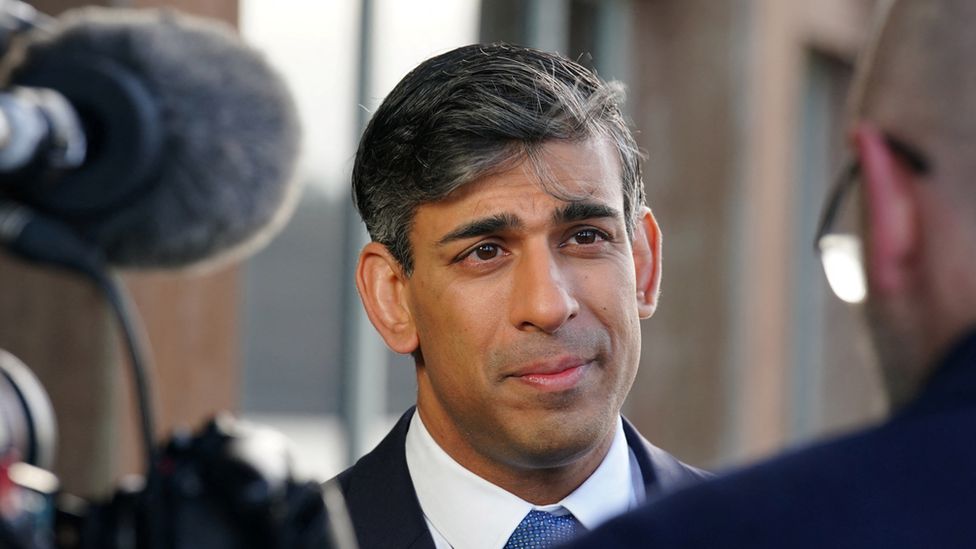Rishi Sunak warns of hatred in politics after Lee Anderson row

Rewritten: Authored by Michael Sheils McNamee The way we share our personal information online is changing, and with it comes new challenges for privacy and security. According to a recent survey, 91% of Americans feel like they've lost control over their data, and to make matters worse, it's difficult to know who can be trusted to protect it. To address this problem, the European Union has introduced a new set of regulations known as the General Data Protection Regulation (GDPR). These rules aim to give individuals more control over their personal data, and require companies to be transparent about how they collect, store, and use it. Under the GDPR, companies must obtain explicit consent from individuals before collecting their data, and they must delete it upon request. Additionally, companies must notify individuals in the event of a data breach, and they face hefty fines if they fail to comply with the regulations. While the GDPR is a step in the right direction for protecting personal data, it remains to be seen how effective it will be in practice. Nevertheless, it's important for individuals to be aware of their rights and take steps to protect their privacy online. By being aware of the risks, practicing good security habits, and demanding accountability from companies, we can create a safer and more secure online world for everyone. Rewritten: As technology advances, so does the way we share our personal information online. As a result, new concerns about privacy and security arise. In a recent survey, 91% of Americans reported feeling like they no longer have control over their personal data. To add to this, it's challenging to determine who we can trust to protect our information. To aid in combating this issue, the European Union has implemented the General Data Protection Regulation (GDPR) which stipulates that individuals have more control over their data and mandates that companies be transparent in collecting, storing, and utilizing personal data. The GDPR requires explicit permission from individuals before gathering their data, and companies must delete said data upon request. If a data breach occurs, the individual must be informed, and if companies do not follow the regulations, they can receive significant fines. This regulation is a positive advancement in regards to data protection, but its efficiency is still in question. However, it's important for people to understand their rights and proactively work to safeguard their privacy when using technology. By acknowledging the online risks, enforcing good security habits, and demanding accountability from companies, we have the potential to create a safer online community for all.

Rishi Sunak has expressed concern regarding the negative impacts of polarization and animosity in politics, following a tense week in the Westminster political arena.
He expressed his thoughts following the suspension of Lee Anderson, a Conservative Member of Parliament, for his unapologetic remarks branding Mayor of London Sadiq Khan as an "Islamist".
The head of government didn't directly respond to the comments, instead discussing demonstrations and the security of lawmakers.
Sir Keir Starmer from the Labour party has demanded that Mr Sunak take control of his party.
MP Mr Anderson from Ashfield received backlash from Labour and Conservative MPs due to his comments made on GB News regarding Islamists having "control" over Mr Khan and handing over the capital city to his "friends."
In response to the comments made on Saturday, Mr Khan labeled Mr Anderson's statement as displaying Islamophobia, anti-Muslim and racist beliefs. He also criticized the actions of the prime minister and his Cabinet for not addressing the situation, citing their lack of involvement as a "deafening silence."
Mr Khan accused Mr Anderson of being divisive, prejudiced against Islam and exhibiting racism in his statements. He also condemned the prime minister and his Cabinet for their apparent lack of response to this matter, calling it an unacceptably silent approach.
After an hour, a representative from the Tory party's chief whip, Simon Hart, verified that Mr. Anderson had lost his position as the whip. This happened because he declined to express regret for his statements.
Taking away the whip resulted in Mr Anderson, who also works for GB News, being barred from his party in Parliament and unable to serve as a Conservative MP anymore.
After he was suspended, Mr Anderson expressed his comprehension of the challenging situation he had created for the prime minister. He affirmed his commitment to back the government's actions against any form of extremism, whether it's antisemitism or Islamophobia.
However, Mr Khan criticized the Conservative Party's choice as being too late and attempted to continue putting pressure on the prime minister by noting that his lack of comment on the situation was a form of implicit support.
Mr. Anderson had been a deputy chairman of the Conservative Party until January. However, he chose to step down from this role to openly oppose the government's stance on the Rwanda vote.
During the evening of Saturday, Sir Keir, the leader of the Labour party, expressed uncertainty about the prime minister's decision to assign him to his current position.
According to him, it is necessary for Mr Sunak to confront the extremists within his party. Additionally, he holds the belief that it is Mr Sunak's duty to prevent the progression of the increasingly harmful language and discourse that is being used.
The pictures in this blog were sourced from Getty Images.
Lee Anderson informed GB News about how he believes that Islamists have taken over Mr Khan and that he has handed over control of our capital city to his acquaintances.
On Saturday evening, Mr. Sunak released a statement where he didn't respond to Mr. Anderson's comments. Instead, he cautioned against the increasing prevalence of bias and anti-Semitic sentiments following the Hamas assaults on Israel on 7 October.
The happenings of the past few weeks are simply the newest in a growing trend that should not be accepted," said the premier.
He mentioned that valid demonstrations were taken over by radical elements. He also stated that democratically elected officials were subjected to intimidation and physical violence.
He stated that during the current week in the parliamentary session, a highly hazardous message was sent out that this type of threatening behavior is effective.
Mr Sunak addressed the public after a week that has been filled with a lot of tension in Westminster. There has been a dispute among the Members of Parliament regarding a vote on a ceasefire in Gaza, along with the growing worries about the safety of MPs.
Sir Lindsay Hoyle, the Speaker of the House of Commons, defended his actions during the Gaza debate by claiming that he was simply trying to keep MPs safe amidst the controversy. Meanwhile, Lord Walney, who serves as the government's Independent Adviser on Political Violence and Disruption, stressed the importance of protecting MPs from any form of intimidation.
According to an article in The Sunday Times, three women MPs have received protection from bodyguards and cars driven by chauffeurs, due to worries about their security.































































